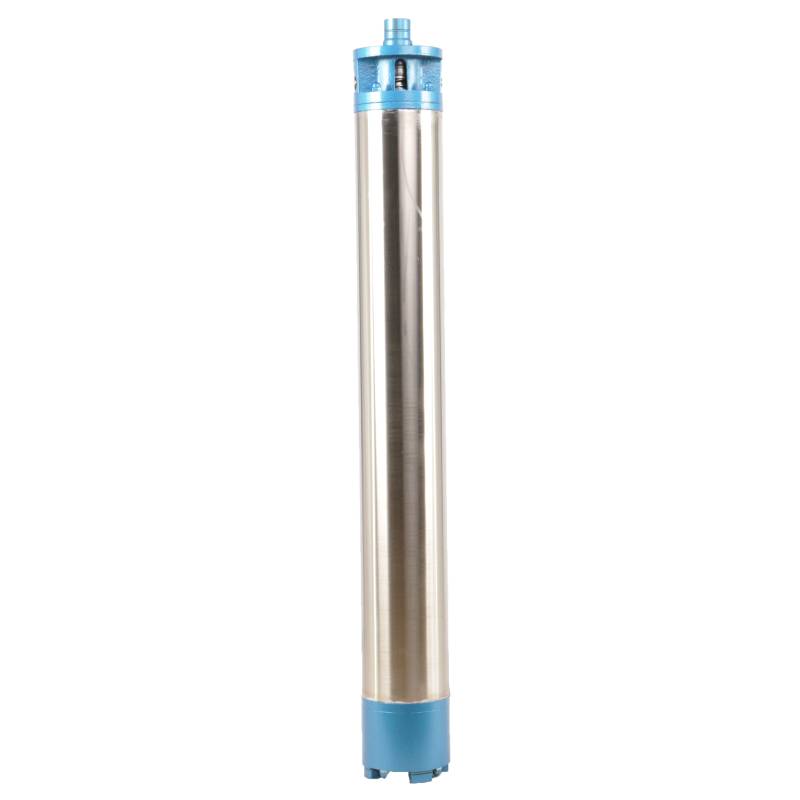nov . 09, 2024 11:57 Back to list
High-Efficiency Deep Well Pump Solutions for Optimal Water Supply Systems
Understanding Deep Well Surface Pumps An Essential Water Management Solution
Deep well surface pumps play a crucial role in water management, particularly in agricultural and industrial applications. As the world grapples with increasingly pressing water scarcity issues, understanding the function and importance of these pumps is essential. This article will delve into the working principle, applications, advantages, and maintenance of deep well surface pumps.
What Are Deep Well Surface Pumps?
Deep well surface pumps, as the name suggests, are designed to extract water from deep underground sources. Unlike submersible pumps that are positioned underwater in the well, surface pumps are installed above the ground. They operate using a suction mechanism that pulls water up through a vertical pipe or well casing. The term deep well typically refers to wells that exceed a depth of 25 feet, although many deep well surface pumps can reach significantly deeper levels.
Working Principle
The working principle of deep well surface pumps revolves around creating a pressure differential. The pump uses an impeller—a rotating component designed to move water—to create a zone of lower pressure at the inlet. When the pressure at the inlet is lower than that of the water in the aquifer, the water is drawn upward. This continuous cycle of sucking water and pushing it through a discharge pipe makes deep well surface pumps efficient for accessing groundwater resources.
Applications
Deep well surface pumps find numerous applications across various sectors
1. Agriculture Farmers often rely on these pumps for irrigation, ensuring crops receive adequate water to thrive. The pumps can be set up to deliver water efficiently over large fields, contributing to improved yields.
2. Industrial Use Many industries need a consistent water supply for processes such as cooling, cleaning, and production. Deep well surface pumps cater to these needs, often servicing factories and manufacturing plants.
3. Municipal Water Supply In many regions, deep well surface pumps are integral to municipal water supply systems. They help ensure communities have access to clean water, especially in areas where surface water sources are limited.
4. Dewatering Construction sites often require dewatering solutions to prevent flooding and manage excavation activities. Deep well surface pumps are effectively used to remove excess water from these sites.
Advantages
deep well surface pump

The popularity of deep well surface pumps is due to several advantages they offer
- Cost-Effective Since these pumps are placed above ground, they are generally more affordable to install and maintain compared to submersible pumps. Additionally, their energy efficiency contributes to lower operational costs.
- Versatility They can be used in various applications, making them suitable for multiple industries. They are adaptable to different well depths, sizes, and water quality conditions.
- Easy Maintenance Being installed above ground allows for easier access during maintenance or repairs, reducing downtime and ensuring longevity.
- Durability High-quality deep well surface pumps are designed to withstand harsh conditions and can operate for long periods before requiring replacement or significant repairs.
Maintenance Best Practices
To ensure a deep well surface pump operates efficiently, regular maintenance is crucial. Here are some best practices
1. Routine Inspections Regularly check the pump for leaks, unusual noises, or vibrations, and ensure all components are functioning correctly.
2. Cleaning Clean the strainer or filter frequently to prevent debris from affecting performance.
3. Check Seals and Bearings Monitor seals for wear and tear, and lubricate bearings as needed to avoid mechanical failures.
4. Monitor Performance Keep an eye on the pump's performance metrics such as flow rate and pressure. Significant changes may indicate a problem that needs addressing.
In conclusion, deep well surface pumps are essential tools for efficient water management in various sectors. Their ability to draw water from significant depths makes them invaluable, especially in water-scarce regions. By understanding their working principles, applications, and maintenance needs, users can ensure optimal performance and sustainability. As technology advances, these pumps are poised to play an even more significant role in addressing global water challenges.
-
Submersible Water Pump: The Efficient 'Power Pioneer' of the Underwater World
NewsJul.01,2025
-
Submersible Pond Pump: The Hidden Guardian of Water Landscape Ecology
NewsJul.01,2025
-
Stainless Well Pump: A Reliable and Durable Pumping Main Force
NewsJul.01,2025
-
Stainless Steel Submersible Pump: An Efficient and Versatile Tool for Underwater Operations
NewsJul.01,2025
-
Deep Well Submersible Pump: An Efficient 'Sucker' of Groundwater Sources
NewsJul.01,2025
-
Deep Water Well Pump: An Efficient 'Sucker' of Groundwater Sources
NewsJul.01,2025
-
 Submersible Water Pump: The Efficient 'Power Pioneer' of the Underwater WorldIn the field of hydraulic equipment, the Submersible Water Pump has become the core equipment for underwater operations and water resource transportation due to its unique design and excellent performance.Detail
Submersible Water Pump: The Efficient 'Power Pioneer' of the Underwater WorldIn the field of hydraulic equipment, the Submersible Water Pump has become the core equipment for underwater operations and water resource transportation due to its unique design and excellent performance.Detail -
 Submersible Pond Pump: The Hidden Guardian of Water Landscape EcologyIn courtyard landscapes, ecological ponds, and even small-scale water conservancy projects, there is a silent yet indispensable equipment - the Submersible Pond Pump.Detail
Submersible Pond Pump: The Hidden Guardian of Water Landscape EcologyIn courtyard landscapes, ecological ponds, and even small-scale water conservancy projects, there is a silent yet indispensable equipment - the Submersible Pond Pump.Detail -
 Stainless Well Pump: A Reliable and Durable Pumping Main ForceIn the field of water resource transportation, Stainless Well Pump has become the core equipment for various pumping scenarios with its excellent performance and reliable quality.Detail
Stainless Well Pump: A Reliable and Durable Pumping Main ForceIn the field of water resource transportation, Stainless Well Pump has become the core equipment for various pumping scenarios with its excellent performance and reliable quality.Detail
